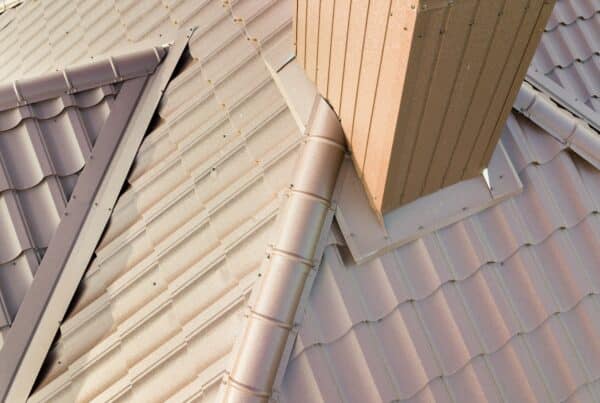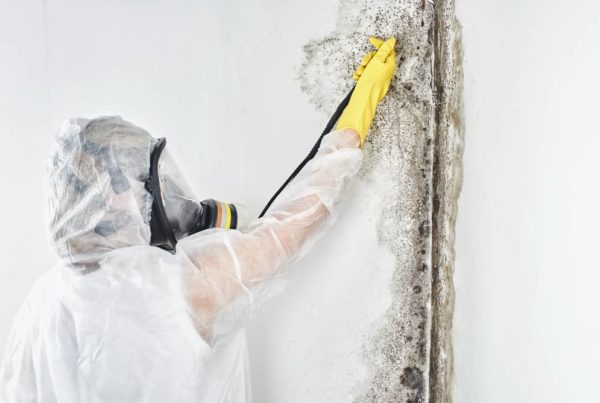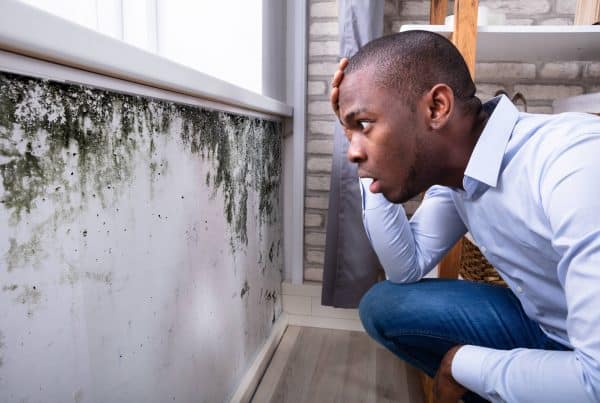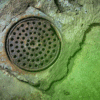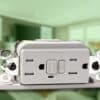
A musty smell inside a house is often a sign of something else going on. While old furniture or stale air can sometimes cause odors, a persistent musty smell often points to moisture issues or even hidden mold.
Mold thrives in damp spaces, and according to the Environmental Protection Agency (EPA), it can start growing within 24-48 hours of water exposure. This guide explains common causes of musty odors, key ways to tell if mold is to blame, and when it’s time to call a professional.
Why Homes Develop Musty Odors
Musty smells usually mean excess moisture, which allows mold, mildew, and bacteria to grow. Some common culprits include:
- Leaks and Water Damage: Even small leaks under sinks, in walls, or from the roof can create the damp conditions mold needs. Mold is often found in places where moisture builds up over time.
- High Humidity: Indoor humidity above 60% creates the perfect environment for mold and mildew.
- Poor Air Circulation: Stagnant air allows moisture to linger, especially in basements, crawl spaces, and attics. Without proper ventilation, musty smells can become a long-term issue.
How to Tell If Mold is the Cause
Not every musty smell means mold, but there are a few telltale signs:
- The smell is strongest near walls, vents, carpets, or flooring.
- You notice dark spots, peeling paint, or discoloration on surfaces.
- Allergy symptoms like sneezing, itchy eyes, or congestion get worse indoors.
- Condensation on windows or walls suggests excess humidity, which fuels mold growth.
If any of these apply to your home, it’s worth investigating further.
Other Causes of Musty Odors
Even if mold isn’t the main issue, other household problems can cause similar smells:
- Old Carpets & Upholstery: Fabrics absorb moisture and odors over time.
- Clogged Drains & Sewer Issues: Buildup in pipes can create a musty, mildew-like smell.
- Dirty HVAC Systems: Mold or dust inside air ducts can spread musty odors throughout the house.
- Damp Attics & Crawl Spaces: Poor insulation and trapped moisture can create stale, musty air.
Reducing Musty Smells at Home
If you’re dealing with a musty odor, these simple steps can help:
- Increase ventilation by opening windows and using fans.
- Control humidity with a dehumidifier to keep levels between 30-50%.
- Fix leaks under sinks, near appliances, and in your roof as soon as possible.
- Deep clean carpets and upholstery to remove trapped moisture and odors.
- Maintain your HVAC system by replacing filters and scheduling professional cleanings.
If the smell persists, there’s a different issue at hand.
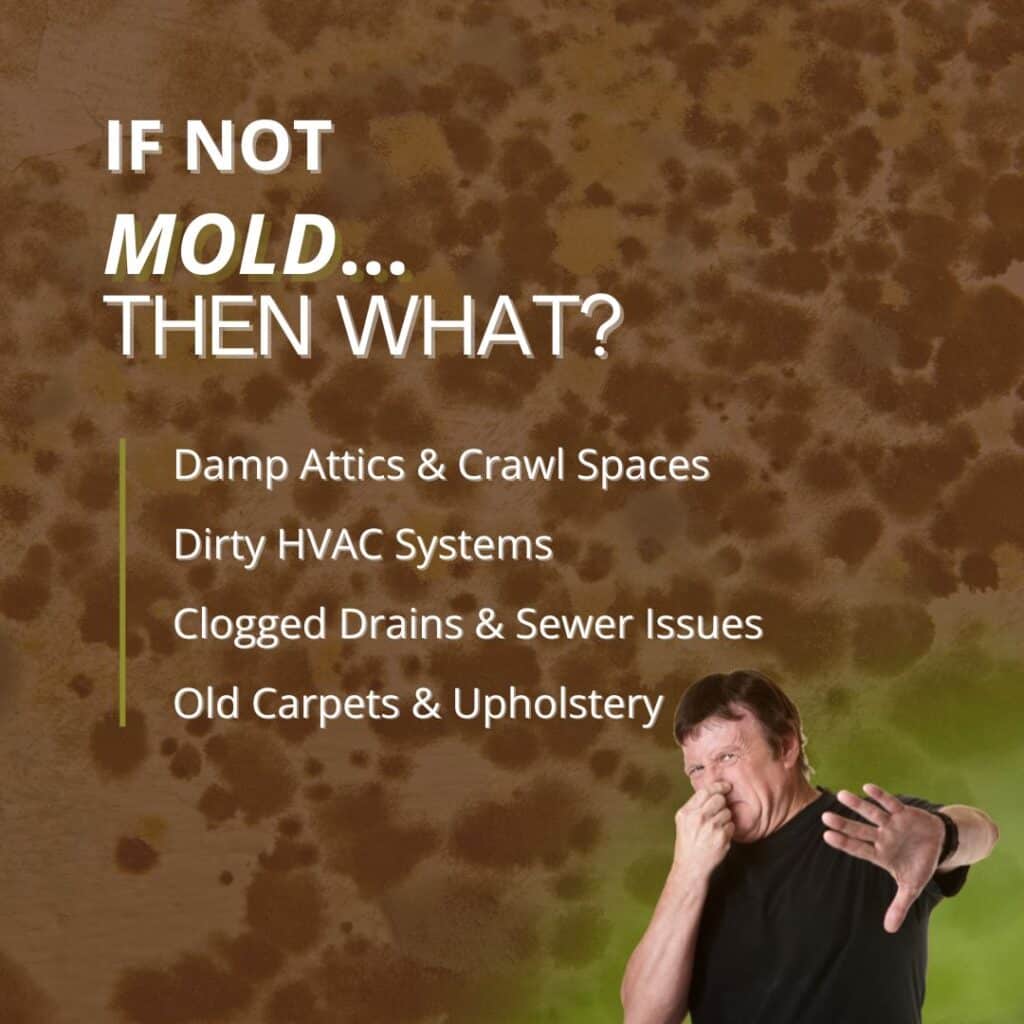
Preventing Musty Odors Long-Term
To keep musty smells from returning, consider these preventive measures:
- Check for water damage regularly, especially after storms.
- Make sure gutters and downspouts direct water away from your foundation.
- Use exhaust fans in kitchens and bathrooms to reduce moisture buildup.
- Inspect basements, attics, and crawl spaces for dampness or poor air circulation.
Staying ahead of moisture problems can help you avoid bigger repairs down the road.
When to Call a Professional
If musty odors won’t go away, it’s time to call in an expert. A professional inspection is a good idea if:
- The smell lingers despite cleaning and ventilation.
- You suspect hidden mold but can’t find the source.
- Your home has had water damage, and you want to ensure it dried properly.
- Family members experience persistent allergy symptoms indoors.
Professional inspectors use moisture meters, thermal imaging, and air quality testing to locate hidden mold, leaks, and ventilation issues.
Conclusion
A musty smell in your house isn’t something to ignore. Whether it’s mold, high humidity, or another moisture issue, tackling the root cause is key to keeping your home fresh and safe.
If you’re struggling with persistent odors and want a thorough home assessment, Avalon Home Inspections can help. Our team identifies hidden moisture, ventilation issues, and mold risks—so you can address the problem before it gets worse. Schedule an inspection today to protect your home and air quality.

